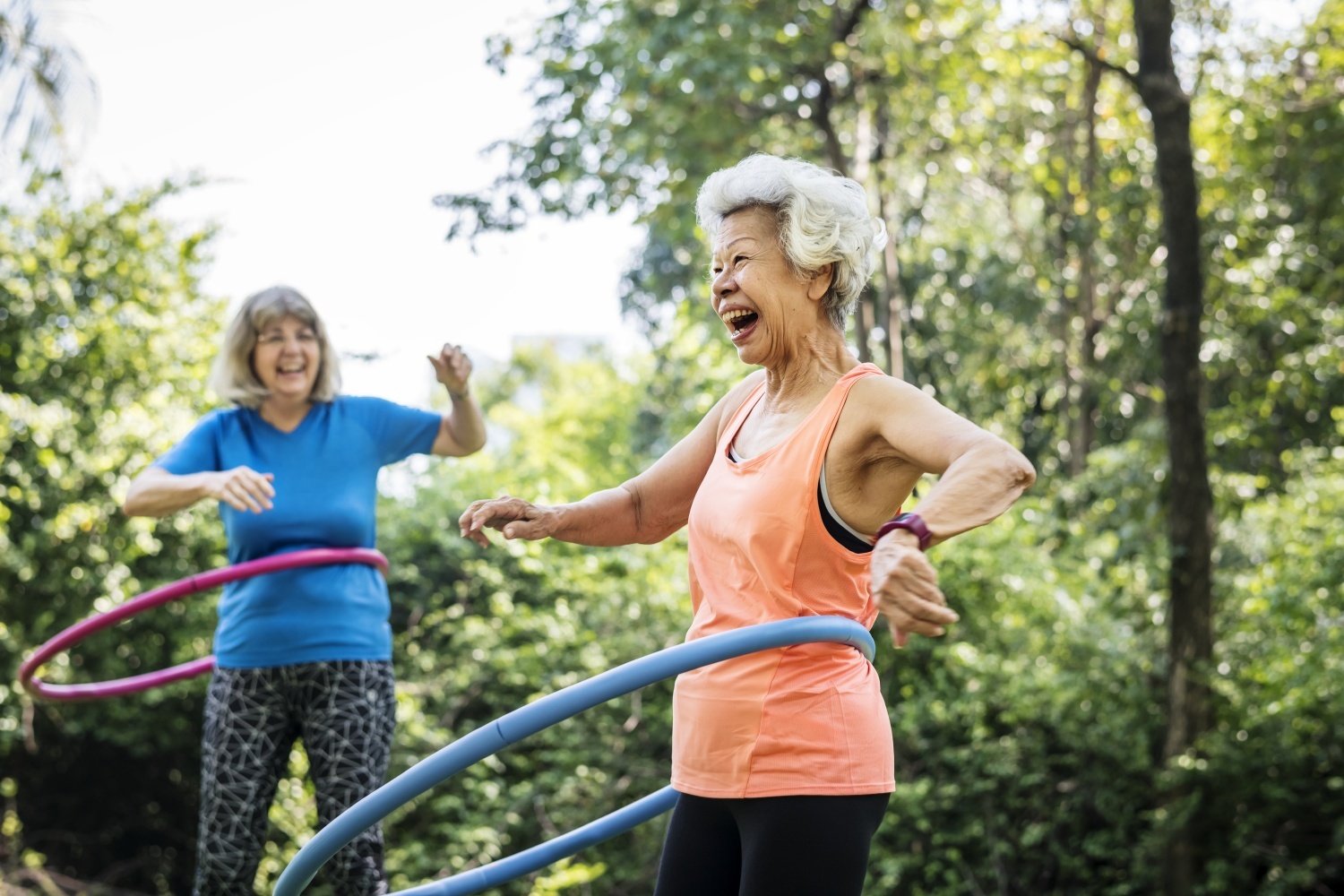
It’s summer, and we’re all feeling the heat as the sun shines and the temperatures rise. As people age, their thirst response decreases and so does their total body fluid—that’s why it’s especially important for seniors to stay hydrated, and even more so in summer!
To help you and yours stay cool and hydrated this summer, we’ve collected some tips* below:
Stay Cool – Limit time outdoors and stay inside where there is air conditioning. If you don’t have air conditioning, let loved ones know, and don’t hesitate to go somewhere cool like a friend’s house, the library, or other community cooling centers.
Drink Water – According to the CDC, “Drink water regularly. Do NOT wait until you’re thirsty to start drinking water.”
Limit Exposure – Skin may begin to burn in as little as 15 minutes, so stay out of direct sunlight and keep to the shade. Cover up with hats, and keep your outfits light and long-sleeved.
Apply Sunscreen – Wear sunblock and reapply per the instructions on the bottle. Don’t forget your ears, the back of your neck and legs, and the top of your feet and hands.
Eat Hydrating Foods – Be sure you’re eating lots of hydrating (and delicious!) foods like cucumber, watermelon, salads, and tomatoes.
Don’t Overdo It – Limit your outdoor exercise and efforts, and be sure to drink water, lie down, and rest when you need to. If you’re not sure if you’re suffering from heat exhaustion or heat stroke, call 911.
Keep A Cool Drink Close By & Remind Others to Drink Fluids – Keep cold drinks within reach so you’re more likely to drink them, and help your loved ones with reminders to hydrate throughout the day.
With summer in full swing all across Washington State, so are our hydration efforts. All of our communities are focusing on hydration with beverages so tasty, they’ll tempt anyone to take a long, cool drink.
We like to dress up water with cucumber, mint, and berries and we also offer cool drinks like lemonade or popsicles that are both refreshing and enticing to help residents keep their fluid intake up.
For extra tips on how to help those with Alzheimer’s or other dementias stay hydrated, click here.
Whether we’re older or younger, we can all strive to be more attentive to our body’s needs. It’s important to notice right away if you feel too hot, lightheaded, or thirsty—those are all important cues your body is giving you.
Here are some signs of dehydration to watch for:
- Fatigue or feeling weak
- Irritability
- Dizziness
- Headaches
- Muscle cramps in arms or legs
- Dry mouth
- Confusion, decreased cognitive function
- Dark-colored urine, urinating less frequently
The National Institute on Aging explains the difference between heat exhaustion and heat stroke:
With heat exhaustion a person may feel thirsty, dizzy, weak, uncoordinated, and nauseated. They may sweat a lot. Their skin may feel cold and clammy. Some people with heat exhaustion have a rapid pulse. They should rest in a cool place and get plenty of fluids. If they don’t feel better soon, they should get medical care. Be careful—heat exhaustion can progress to heat stroke.
Heat Stroke is an Emergency. If a person has heat stroke, call 911.
Signs of heat stroke:
- Fainting or becoming unconscious
- Changes in behavior like agitation, staggering, irritability, or acting strangely
- Body temperature over 104°F
- Dry, flushed skin and a strong, rapid pulse or a slow, weak pulse
- Not sweating even if it is hot
Joyful & Vibrant Summers
We’re here to help residents stay cool and enjoy all summer has to offer. Fieldstone Communities are dedicated to joyful and vibrant senior living—and in the summertime, that means cookouts, fresh fruits, live music, and lots of summery meals, activities, and flowers at every turn. To learn more about a Fieldstone community near you, click here.
From all of us at Fieldstone Communities, we are wishing you and yours a happy, safe summer with lots of cool fun!
*Sources:
https://www.ncoa.org/article/how-to-stay-hydrated-for-better-health
https://www.nia.nih.gov/health/hot-weather-safety-older-adults
https://www.cdc.gov/aging/emergency-preparedness/older-adults-extreme-heat/index.html
https://www.alzheimers.org.uk/get-support/daily-living/drinking-hydration